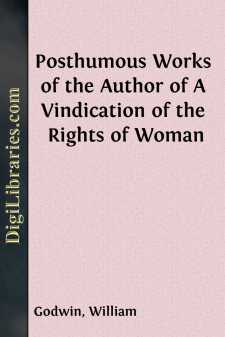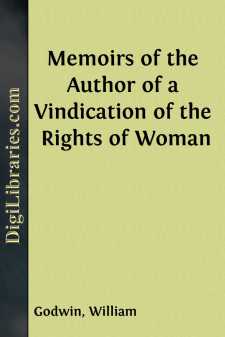Categories
- Antiques & Collectibles 13
- Architecture 36
- Art 48
- Bibles 22
- Biography & Autobiography 813
- Body, Mind & Spirit 142
- Business & Economics 28
- Children's Books 16
- Children's Fiction 13
- Computers 4
- Cooking 94
- Crafts & Hobbies 4
- Drama 346
- Education 46
- Family & Relationships 57
- Fiction 11829
- Games 19
- Gardening 17
- Health & Fitness 34
- History 1377
- House & Home 1
- Humor 147
- Juvenile Fiction 1873
- Juvenile Nonfiction 202
- Language Arts & Disciplines 88
- Law 16
- Literary Collections 686
- Literary Criticism 179
- Mathematics 13
- Medical 41
- Music 40
- Nature 179
- Non-Classifiable 1768
- Performing Arts 7
- Periodicals 1453
- Philosophy 64
- Photography 2
- Poetry 896
- Political Science 203
- Psychology 42
- Reference 154
- Religion 513
- Science 126
- Self-Help 84
- Social Science 81
- Sports & Recreation 34
- Study Aids 3
- Technology & Engineering 59
- Transportation 23
- Travel 463
- True Crime 29
Posthumous Works of the Author of A Vindication of the Rights of Woman
by: William Godwin
Categories:
Description:
Excerpt
PREFACE.
The public are here presented with the last literary attempt of an author, whose fame has been uncommonly extensive, and whose talents have probably been most admired, by the persons by whom talents are estimated with the greatest accuracy and discrimination. There are few, to whom her writings could in any case have given pleasure, that would have wished that this fragment should have been suppressed, because it is a fragment. There is a sentiment, very dear to minds of taste and imagination, that finds a melancholy delight in contemplating these unfinished productions of genius, these sketches of what, if they had been filled up in a manner adequate to the writer's conception, would perhaps have given a new impulse to the manners of a world.
The purpose and structure of the following work, had long formed a favourite subject of meditation with its author, and she judged them capable of producing an important effect. The composition had been in progress for a period of twelve months. She was anxious to do justice to her conception, and recommenced and revised the manuscript several different times. So much of it as is here given to the public, she was far from considering as finished, and, in a letter to a friend directly written on this subject, she says, "I am perfectly aware that some of the incidents ought to be transposed, and heightened by more harmonious shading; and I wished in some degree to avail myself of criticism, before I began to adjust my events into a story, the outline of which I had sketched in my mind." The only friends to whom the author communicated her manuscript, were Mr. Dyson, the translator of the Sorcerer, and the present editor; and it was impossible for the most inexperienced author to display a stronger desire of profiting by the censures and sentiments that might be suggested.
In revising these sheets for the press, it was necessary for the editor, in some places, to connect the more finished parts with the pages of an older copy, and a line or two in addition sometimes appeared requisite for that purpose. Wherever such a liberty has been taken, the additional phrases will be found inclosed in brackets; it being the editor's most earnest desire, to intrude nothing of himself into the work, but to give to the public the words, as well as ideas, of the real author.
What follows in the ensuing pages, is not a preface regularly drawn out by the author, but merely hints for a preface, which, though never filled up in the manner the writer intended, appeared to be worth preserving.
W. GODWIN.
The Wrongs of Woman, like the wrongs of the oppressed part of mankind, may be deemed necessary by their oppressors: but surely there are a few, who will dare to advance before the improvement of the age, and grant that my sketches are not the abortion of a distempered fancy, or the strong delineations of a wounded heart.
In writing this novel, I have rather endeavoured to pourtray passions than manners.
In many instances I could have made the incidents more dramatic, would I have sacrificed my main object, the desire of exhibiting the misery and oppression, peculiar to women, that arise out of the partial laws and customs of society.
In the invention of the story, this view restrained my fancy; and the history ought rather to be considered, as of woman, than of an individual....









